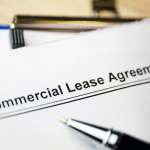7 Steps to Owning Your Own Commercial Real Estate
Looking for commercial real estate — whether you’re interested in something that will suit your business needs or for an investment — means you’ll probably begin your search online. This first step is essential, both to assess your situation, as well as to determine what your ideal property should look like. But, success in this field requires quite a bit of additional legwork. So, here’s a practical guide to streamline your process toward owning your own commercial real estate.
1. Assess the Situation & Your Business Needs
The first step in purchasing commercial real estate is knowing yourself, your situation and what you’re looking for. That’s because your ideal property might look very different depending on your location preferences; the type of asset you’re looking for; or whether you’re planning to buy, build or rent a space. And, of course, your financing will also play a key role in drawing up your plans.
Each of your decisions then creates new choices to be weighed. For instance, should you decide to buy a property, you need to consider whether you’d be prepared to invest in refurbishing or fixing up the place, as well as what your maximum budget would be. Likewise, will you be a hands-on landlord or are you going to rely on the services of a property manager?
2. Learn Some Commercial Real Estate Vocabulary
If you’re taking your first steps in the commercial real estate sector, you’ll need to familiarize yourself with some of the industry-specific terminology you’re likely to encounter and, eventually, employ during your process. Plus, a solid foundation will help you communicate and work better with commercial real estate professionals. While there are a lot of terms and acronyms in commercial real estate, here are some common ones to get started:
- Loan-To-Value (LTV): A ratio of how much money you’re asking from a lender compared to the total value of what you want to purchase.
- Debt Service Coverage Ratio (DSC): The total remaining cash flow after all of the operating expenses have been paid, including the loan payment.
- Capitalization Rate (Cap Rate): Income of the property divided by the total value of the property.
Granted, these are just some of the terms to be familiar with. CommercialCafe has a great glossary of industry-specific terms.
3. Tour as Many Properties as Possible
After your thorough online research, schedule tours for the properties that made the shortlist. This is imperative to ensure that the amenities, location and layout of the building are a good fit for your business.
Likewise, as far as the location of the asset, it’s also important to inquire about the prospective property’s current use, as well as whether there are any zoning restrictions that might negatively affect your particular business.
In terms of future income, you’ll also want to gauge the amount of rent generated by the property to date. In particular, factor in whether any changes in the surrounding area — such as major developments, infrastructure investments or important companies moving in — could influence your property’s value on the market.
4. Call Upon Experts to Guide You
Buying commercial real estate is often a complex process that will require the assistance of a number of professionals. To that end, depending on the type of property you’re looking to buy, you might want to hire an accountant, a lawyer and a realtor specialized in commercial real estate, as well as a mortgage broker. Then, in the long term, you might call upon the services of tax experts, notaries, appraisers, engineers and/or environmental specialists.
5. Determine Your Financing Options
Considering the substantial price of many commercial real estate assets, cash-only transactions are the exception rather than the rule in the industry. As such, securing loans or lines of credit that will enable you to buy or lease the property of your choice is paramount.
Fortunately, there are a variety of creditors at your disposal — from banks to credit unions or institutional lenders. Which one you choose will depend on your credit; the mortgage type and terms that you’re looking for; and what the loan will be used for (for example, construction loans, bridge loans, small business loans, etc.). Notably, besides the more traditional financing methods, commercial real estate crowdfunding has also become increasingly popular in recent years.
6. Write a Letter of Intent
Once you find your ideal commercial real estate property, secure the space by writing a letter of intent (LOI). This document responds to the landlord’s terms by presenting your own conditions and setting up a framework for further negotiations. However, before you sign anything, make sure you have a lawyer review the letter, as well as any other documents. Similarly, ask for detailed explanations of all written agreements so you know exactly what your rights and obligations are.
7. Do Your Due Diligence & Secure Escrow
Before a deal can be finalized, there are a couple of other matters to address. First, order an American Land Title Association (ALTA) survey as part of your due diligence. This document will outline the property boundaries; location of the main building or any additional buildings; improvements; and any easements (which are access rights by different service companies, such as water, gas, telephone, railways and other utilities).
Second, secure the services of an escrow officer, who will act as a neutral third-party to oversee the transaction. This individual will also help with the transfer of deeds and funds.
Finally, the buyer has a due diligence period to check whether all of the documentation about the property is correct. This includes things like service and utility contracts; surveys; rent rolls; covenants; and restrictions, etc. Should anything suspicious come up during this last phase, you also have the right to tell escrow to cancel the transfer of funds.








